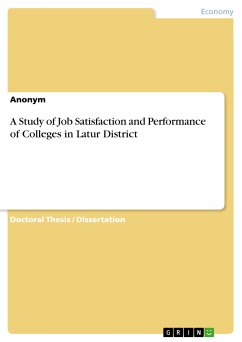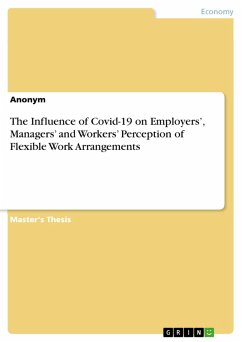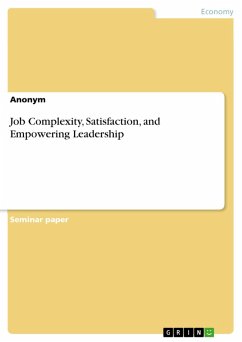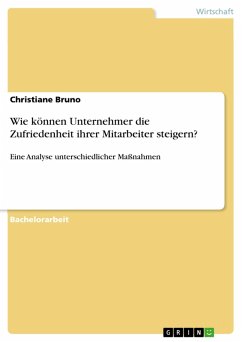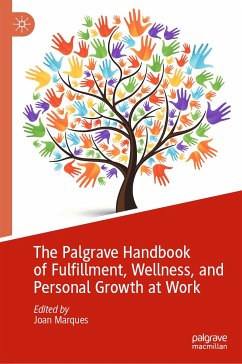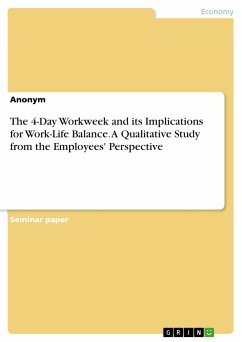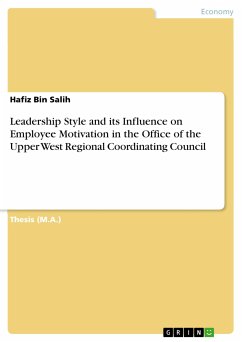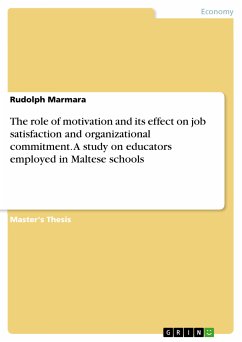
The role of motivation and its effect on job satisfaction and organizational commitment. A study on educators employed in Maltese schools (eBook, PDF)
Versandkostenfrei!
Sofort per Download lieferbar
Statt: 47,95 €**
36,99 €
inkl. MwSt. und vom Verlag festgesetzt.
**Preis der gedruckten Ausgabe (Broschiertes Buch)
Weitere Ausgaben:

PAYBACK Punkte
0 °P sammeln!
Master's Thesis from the year 2019 in the subject Leadership and Human Resources - Employee Motivation, grade: MERIT, University of Chester (Chester Business School), course: Master in Business Administration, language: English, abstract: This study was based on the philosophy of positivism which directed the author to use a deductive approach. A stratified random sampling technique was used to select a sample from each educators' category out of a total population of 6745 educators. A total of 713 respondents (382 teachers, 65 kindergarten educators and 266 learning support educators) took pa...
Master's Thesis from the year 2019 in the subject Leadership and Human Resources - Employee Motivation, grade: MERIT, University of Chester (Chester Business School), course: Master in Business Administration, language: English, abstract: This study was based on the philosophy of positivism which directed the author to use a deductive approach. A stratified random sampling technique was used to select a sample from each educators' category out of a total population of 6745 educators. A total of 713 respondents (382 teachers, 65 kindergarten educators and 266 learning support educators) took part in the study. The data collecting tool used was a questionnaire with close-ended questions. SurveyMonkey and MS Excel built-in tools were used to analyse and present the quantitative data collected. The Maltese Government has highly invested in its educational sector intending to achieve a better learning outcome rate and decrease the number of early school leavers. To reach its targets, the education expenditure rate in 2017 compared to Malta's GDP was 4.9% which was above the EU average. Furthermore, in 2018, the budget for Education was even higher due to an increase in educators' salaries. The Maltese educational sector, which is under the remit of the Ministry of Education and Employment (MEDE), employs 9871 people which is a substantial share of the country's public service workforce. Most of them are educators who are collectively responsible for the learning outcomes of students attending Maltese State schools (MSS). Apart from the administrative roles of College Principals, Head of Departments, Head of Schools, Assistant Heads of Schools and Education Officers, the Educators' class is composed of three other categories which are the teachers in both primary and secondary schools, the kindergarten educators (KE's) and the learning support educators (LSE's). For this research study, any reference to the Educators class is referring to the categories of teachers, KE's and LSE's.
Dieser Download kann aus rechtlichen Gründen nur mit Rechnungsadresse in A, B, BG, CY, CZ, D, DK, EW, E, FIN, F, GR, HR, H, IRL, I, LT, L, LR, M, NL, PL, P, R, S, SLO, SK ausgeliefert werden.




